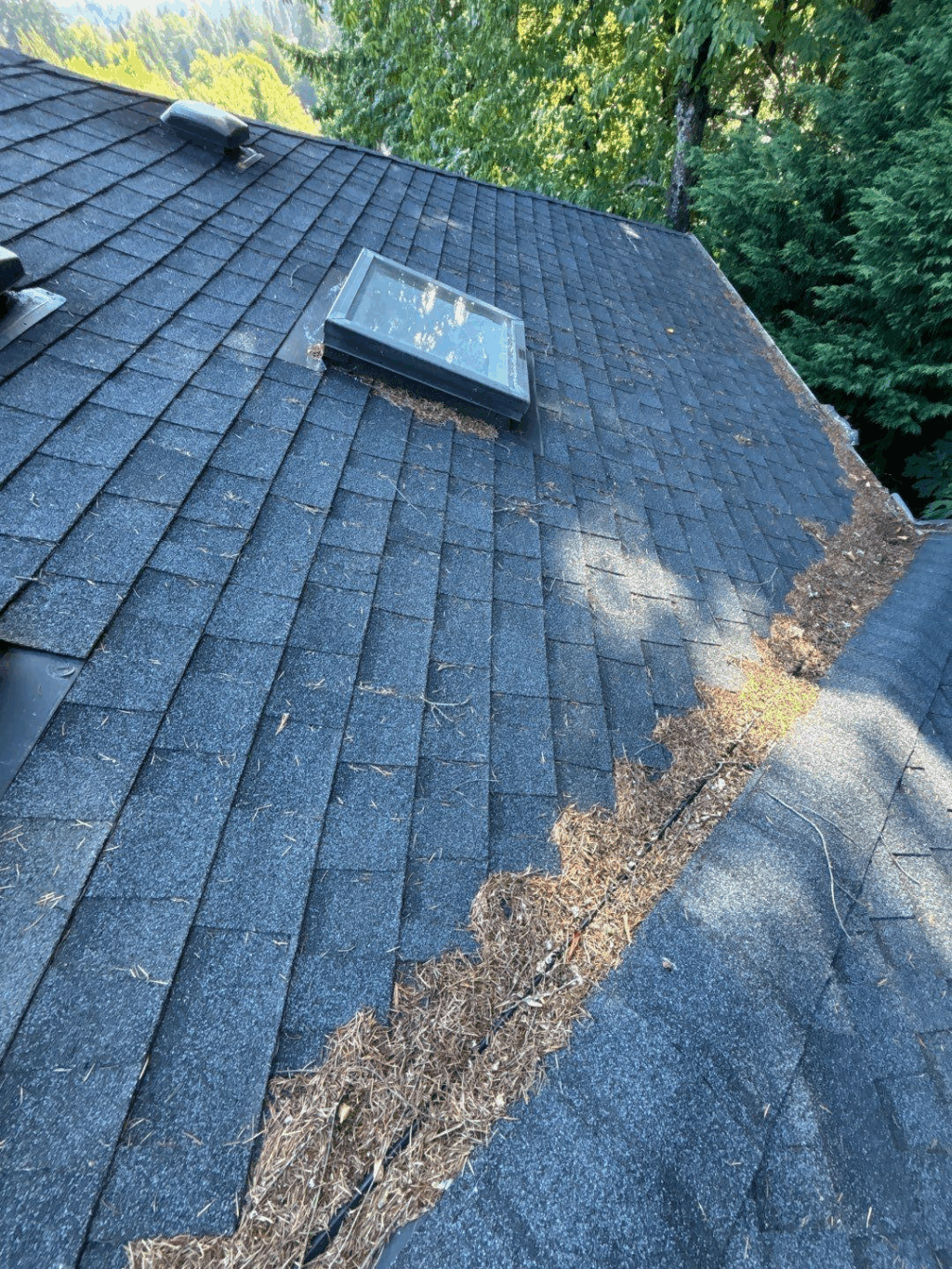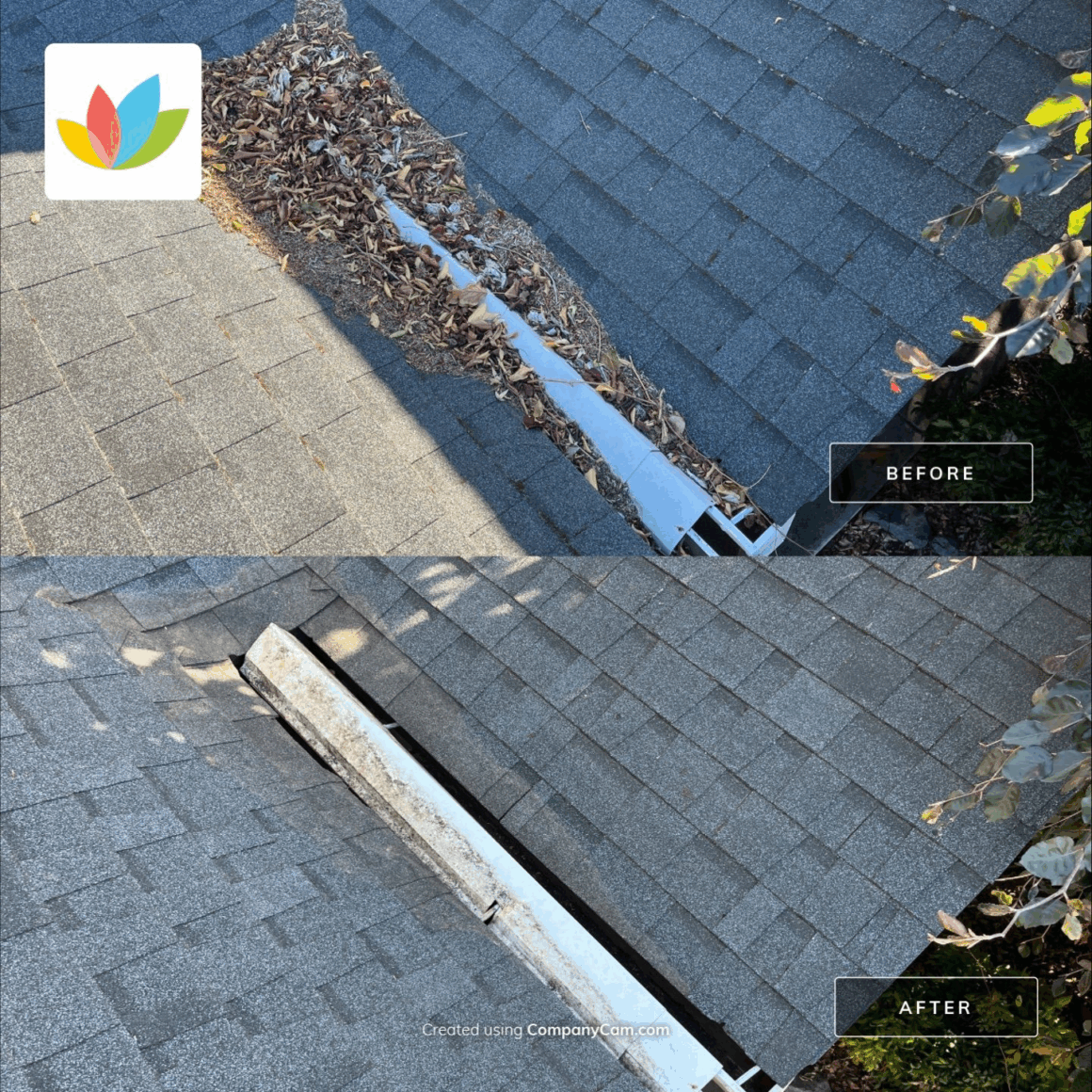Fire Safety and Gutters: Why Clearing Debris Matters in Dry Seasons

As dry seasons descend, bringing with them arid conditions and heightened fire risks, the focus on home safety often turns to defensible spaces around your property. While overgrown vegetation and flammable materials on the ground are commonly addressed, there’s a crucial, often overlooked area that demands attention: your gutters. These seemingly innocuous channels, if neglected, can become a significant fire hazard, especially when filled with dry leaves, twigs, and other combustible debris.
The Hidden Danger in Your Gutters
During prolonged dry seasons, the debris accumulated in your gutters: such as dead leaves, pine needles, and small branches, becomes exceptionally dry and highly flammable. This creates a perfect tinderbox right at the edge of your roof, making your home vulnerable to ember ignition.
Consider these scenarios:
- Wind-borne Embers: Wildfires, even those miles away, can send embers aloft. These fiery fragments can travel significant distances, landing on roofs and, critically, in debris-filled gutters. A single ember can quickly ignite the dry material, leading to a gutter fire that can spread rapidly to your roof and attic.
- Neighboring Fires: Even a small brush fire or a fire at a neighboring property can send sparks or flames towards your home. If your gutters are full of dry debris, they act as an easy pathway for fire to climb onto your roof structure.
- Chimney Sparks: For homes with fireplaces or wood-burning stoves, stray sparks from the chimney can easily land in nearby gutters. If those gutters are packed with dry, flammable material, a fire can ignite without warning.
Protecting Your Home: A Crucial Step
Preventing gutter fires is a straightforward, yet vital, component of comprehensive home fire safety, particularly in dry seasons.
- Regular Cleaning: The most effective defense is routine cleaning. During dry seasons, increase the frequency of gutter cleaning to ensure no combustible material is allowed to accumulate.
- Trim Overhanging Branches: Remove any tree branches that hang over your roof. These can deposit leaves and debris directly into your gutters, and in the event of a fire, they can provide a direct path for flames to reach your home.
- Gutter Guards: While not a substitute for cleaning, gutter guards can help reduce the amount of large debris entering your gutters, extending the time between cleanings. However, fine debris can still accumulate, so regular checks are still necessary.
The Role of Gutter Professionals
When it comes to fire safety, precision and thoroughness are paramount. This is where professional gutter cleaning services become invaluable. Hiring gutter professionals ensures that your drainage system is not only clear of blockages but also inspected for any potential vulnerabilities.

Professional services offer:
- Thorough Debris Removal: Gutter professionals have the right tools and expertise to completely clear all types of debris, including compacted leaves, shingle grit, and small branches, from your gutters and downspouts.
- System Inspection: During a cleaning, gutter professionals can identify any damage, such as cracks, loose hangers, or misaligned sections, that might compromise the system’s ability to direct water effectively, or, in a fire scenario, become a weak point.
- Safe Execution: Climbing ladders and working on roofs can be dangerous. Gutter professionals are equipped with safety gear and training to perform the job safely and efficiently.
- Preventative Maintenance Plans: Many gutter professionals offer recurring cleaning schedules, ensuring your gutters remain clear throughout the year, especially during critical dry periods.
Investing in Peace of Mind
The small effort and investment in keeping your gutters clear is a significant step in safeguarding your home and family from the devastating impact of a fire. Don’t let this often-overlooked aspect of home maintenance become a hidden hazard. Prioritize clean gutters, especially in dry seasons, and secure your peace of mind.

 Seamless HVAC Protection: Year-Round AC Care and Around-the-Clock Furnace Support
Seamless HVAC Protection: Year-Round AC Care and Around-the-Clock Furnace Support  The Impact Of Water Depth On Dock Renovation Choices
The Impact Of Water Depth On Dock Renovation Choices  The Hidden Dangers of Water Damage and How to Handle Them
The Hidden Dangers of Water Damage and How to Handle Them